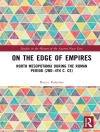This study investigates the thinking of European authors from Vitoria to Kant about political justice, the global community, and the rights of strangers as one special form of interaction among individuals of divergent societies, political communities, and cultures. Taking an interdisciplinary approach, it covers historical material from a predominantly philosophical perspective, interpreting authors who have tackled problems related to the rights of strangers under the heading of international hospitality. Their analyses of the civitas maxima or the societas humani generis covered the nature of the global commonwealth. Their doctrines of natural law (ius naturae) were supposed to provide what we nowadays call theories of political justice. The focus of the work is on international hospitality as part of the law of nations, on its scope and justification. It follows the political ideas of Francisco de Vitoria and the Second Scholastic in the 16th century, of Alberico Gentili, Hugo Grotius, Samuel Pufendorf, Christian Wolff, Emer de Vattel, Johann Jacob Moser, and Immanuel Kant. It draws attention to the international dimension of political thought in Thomas Hobbes, John Locke, Jean-Jacques Rousseau, David Hume, Adam Smith, and others. This is predominantly a study in intellectual history which contextualizes ideas, but also emphasizes their systematic relevance.
Georg Cavallar
Rights of Strangers [PDF ebook]
Theories of International Hospitality, the Global Community and Political Justice since Vitoria
Rights of Strangers [PDF ebook]
Theories of International Hospitality, the Global Community and Political Justice since Vitoria
Cumpărați această carte electronică și primiți încă 1 GRATUIT!
Limba Engleză ● Format PDF ● Pagini 430 ● ISBN 9781351540971 ● Editura Taylor and Francis ● Publicat 2017 ● Descărcabil 3 ori ● Valută EUR ● ID 5325061 ● Protecție împotriva copiilor Adobe DRM
Necesită un cititor de ebook capabil de DRM












